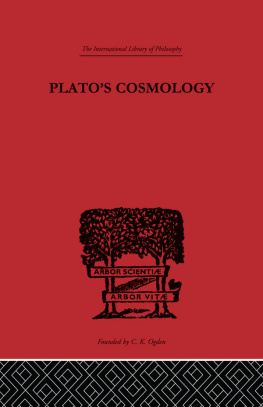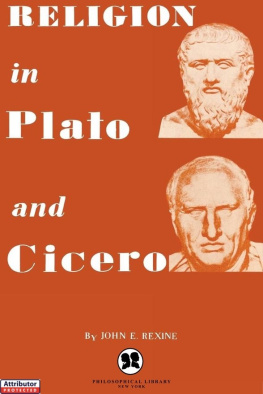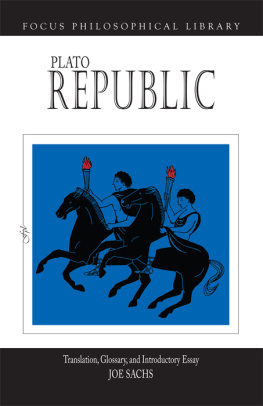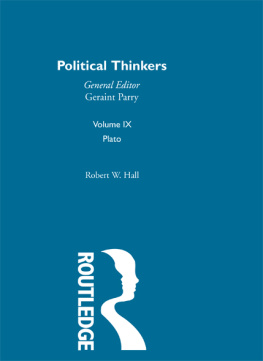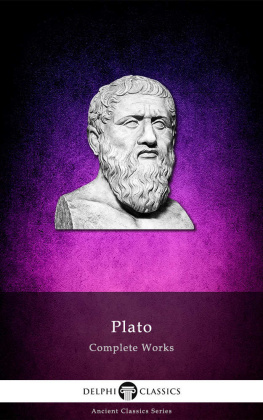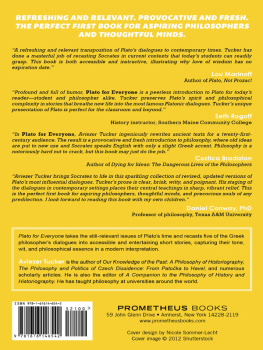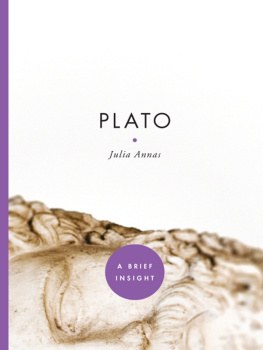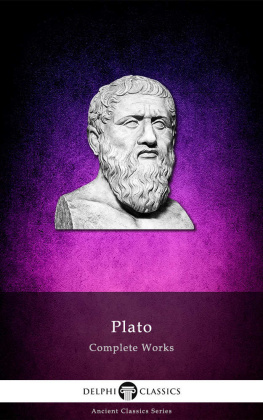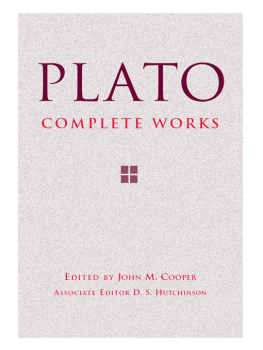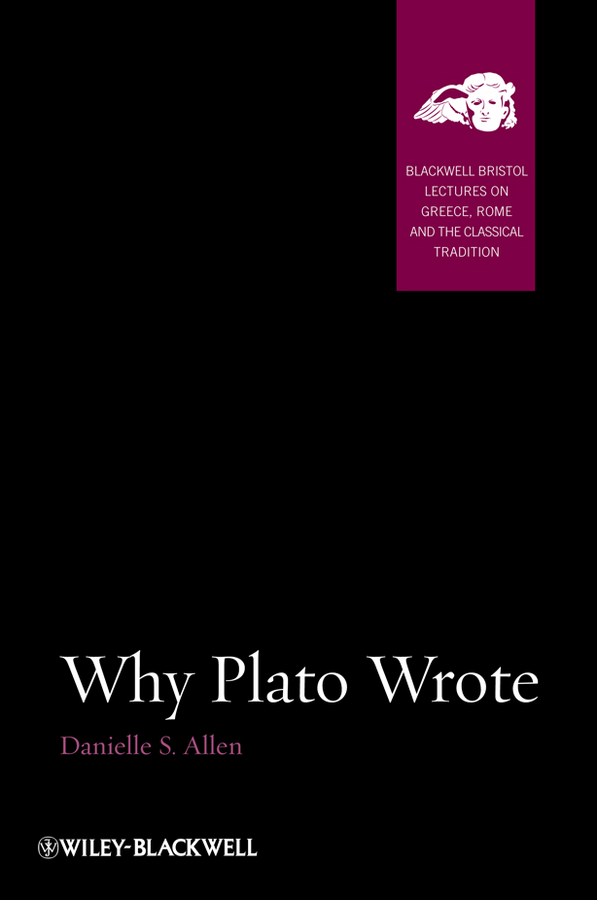Blackwell Bristol Lectures on Greece, Rome and the Classical Tradition
Current Series Editor: Neville Morley
The Bristol Institute of Greece, Rome and the Classical Tradition promotes the study of Greco-Roman culture from antiquity to the present day, in the belief that classical culture remains a vital influence in the modern world. It embraces research and education in many fields, including history of all kinds, archaeology, literary studies, art history and philosophy, with particular emphasis on links between the ancient and modern worlds. The Blackwell Bristol lectures showcase the very best of modern scholarship in Classics and the Classical Tradition.
Published
Why Plato Wrote
Danielle Allen
Tales of the Barbarians: Ethnography and Empire in the Roman West Greg Woolf

This edition first published 2010
Danielle S. Allen 2010
Blackwell Publishing was acquired by John Wiley & Sons in February 2007. Blackwell's publishing program has been merged with Wiley's global Scientific, Technical, and Medical business to form Wiley-Blackwell.
Registered Office
John Wiley & Sons Ltd, The Atrium, Southern Gate, Chichester, West Sussex, PO19 8SQ, United Kingdom
Editorial Offices
350 Main Street, Malden, MA 021485020, USA
9600 Garsington Road, Oxford, OX4 2DQ, UK
The Atrium, Southern Gate, Chichester, West Sussex, PO19 8SQ, UK
For details of our global editorial offices, for customer services, and for information about how to apply for permission to reuse the copyright material in this book please see our website at www.wiley.com/wiley-blackwell.
The right of Danielle S. Allen to be identified as the author of this work has been asserted in accordance with the UK Copyright, Designs and Patents Act 1988.
All rights reserved. No part of this publication may be reproduced, stored in a retrieval system, or transmitted, in any form or by any means, electronic, mechanical, photocopying, recording or otherwise, except as permitted by the UK Copyright, Designs and Patents Act 1988, without the prior permission of the publisher.
Wiley also publishes its books in a variety of electronic formats. Some content that appears in print may not be available in electronic books.
Designations used by companies to distinguish their products are often claimed as trademarks. All brand names and product names used in this book are trade names, service marks, trademarks or registered trademarks of their respective owners. The publisher is not associated with any product or vendor mentioned in this book. This publication is designed to provide accurate and authoritative information in regard to the subject matter covered. It is sold on the understanding that the publisher is not engaged in rendering professional services. If professional advice or other expert assistance is required, the services of a competent professional should be sought.
Library of Congress Cataloging-in-Publication Data
Allen, Danielle S., 1971- Why Plato wrote/Danielle S. Allen.
p. cm. (Blackwell-Bristol lectures on Greece, Rome and the classical tradition) Includes bibliographical references and index.
ISBN 978-1-4443-3448-7 (hardback)
1. Plato. 2. Authorship-Psychological aspects. I. Title. B395.A53 2010
184-dc22
2010027875
For all my teachers and students

And in his own city he did not meddle with political affairs, although he was a politician or political leader to judge from his writings. (Diog. Laert. 3.23)
Acknowledgments
This book grew from the four Bristol-Blackwell lectures that I gave at the University of Bristol in May 2008. First and foremost I owe thanks to the hosts of that event: Al Bertrand, Gillian Clark, Bob Fowler, Charles Martindale, and Neville Morley. I am grateful too to their colleagues, all such warm hosts also: Chris Bertram, Terrell Carver, Sarah Hitch, Kurt Lampe, Nico Momigliano, and Giles Pearson. The 2009 Lionel Trilling Lecture at Columbia University, a Friday night lecture at St. Johns College, and the 2010 Benedict Lectures at Boston University provided the opportunity to summarize the books argument before engaged and challenging audiences. I am particularly grateful to the respondents on those occasions, including Nadia Urbinati, Katja Vogt, Amelie Rorty, David Roochnik, and Mitch Miller for trenchant commentary.
Two decades of conversation have gone into this book. Id like to thank the students in seminars I taught at the University of Chicago on Platos Menexenus, Republic, and Theaetetus, colleagues in the "Moral Authority of Nature" working group at the Max Planck Institute for the History of Science in Berlin and in the Language, History, and Political Thought group at the University of Chicago as well as audiences at Baylor University, Bryn Mawr College, Cambridge University, Columbia University, Harvard University, the Institute for Advanced Study, University of Michigan, Princeton University, the University of Southern California, and several American Political Science Association annual meetings.
The research conclusions of several former dissertation students are assimilated here, as indicated in the notes, particularly those of Brendan Boyle, Alex Gottesman, Hugh Liebert, Jennifer London, Emily Nacol, John Paulas, Daniela Reinhard, and Neil Roberts. Working with each was a great joy.
This book has also benefited tremendously from exchanges with William Allen, Graham Burnett, Caroline Bynum, James Conant, Lorraine Daston, Mary Dietz, Jimmy Doyle, Peter Euben, Chris Faraone, Simon Goldhill, Kevin Hawthorne, Bonnie Honig, Leslie Kurke, Gabriel Lear, Jonathan Lear, Patrick McGuinn, Maureen McLane, Patchen Markell, Eric Maskin, Sara Monoson, Mary Nichols, Jennifer Pitts, Robin Osborne, Malcolm Schofield, Melissa Schwartzberg, Rick Schweder, Joan Scott, Kendall Sharp, George Shulman, Laura Slatkin, Marc Stears, Lisa van Alstyne, Robert von Hallberg, John Wallach, and Michael Walzer. Special thanks go to those who read the whole manuscript in draft, saw beyond where I had gotten, and inspired me to the final phase of this work: Paul Cartledge, John Cooper, Jill Frank, Richard Kraut, Melissa Lane, and Josh Ober.
Errors are mine.
The author and publisher gratefully acknowledge the permission granted to reproduce the copyright material in this book:
Reprinted by permission of the publishers and the Trustees of the Loeb Classical Library from Plato: Volume IX, translated by R. G. Bury, Loeb Classical Library Volume 234, pp. 486, 488-490, 494-496, 498, 512-514, 516-518, 528, 530-534, 538-540, 552, 562, Cambridge, MA: Harvard University Press, Copyright (c) 1929 by the President and Fellows of Harvard College. The Loeb Classical Library is a registered trademark of the President and Fellows of Harvard College.
G. R. F. Ferrari, Plato: The Republic, translated by Tom Griffith, 2000, in the translation and editorial matter Cambridge University Press 2000, reproduced with permission.
The information used to generate the map on p. 96 comes from R. Ginouves and M. Hatzopoulos, eds. 1994. Macedonia from Philip II to the Roman Conquest. Princeton, NJ: Princeton University Press, 48-49.
Abbreviations



